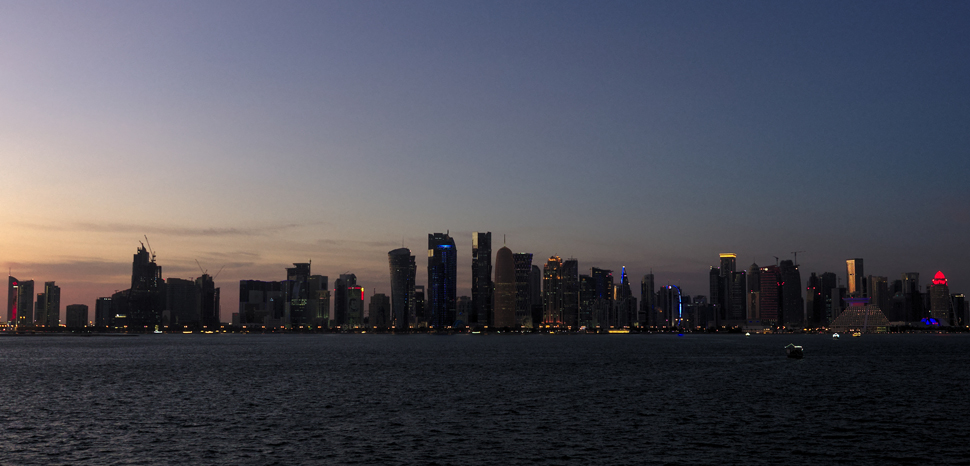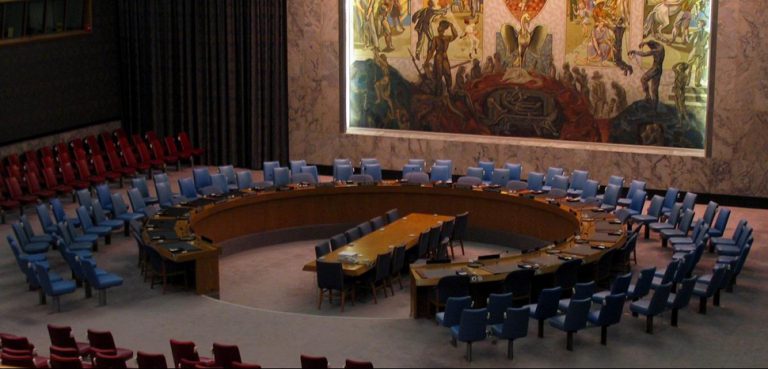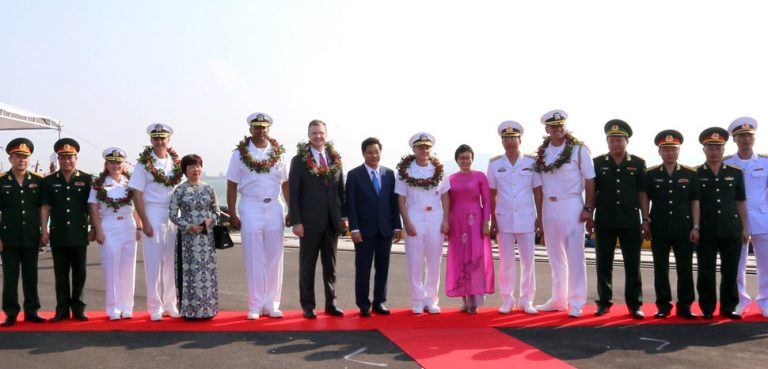The relationship between Indonesia and the Gulf States has advanced in every field, with bilateral cooperation encompassing economic, political, and socio-cultural cooperation. On the economic side, Indonesia has agreed to establish an economic partnership framework arrangement, which includes a free trade agreement (FTA), with six Gulf Arab countries that are members of the GCC (Gulf Country Council).
Indonesia-Gulf trade has climbed by 40%, from US$8.68 billion in 2016 to US $12.15 billion in 2018. Similarly, two-way investments between Indonesia and the Gulf rose by 26%, from US$60.3 million in 2016, to US$76.1 million in 2018.
The agreement also provides an entry point for Indonesia to carry out deeper bilateral cooperation with all GCC countries. Indonesia-Bahrain trade cooperation in 2018, for instance, reached USD $116 million, with an export value of US $ 46.67 million. At the same time, Indonesia’s trade with Kuwait reached $389.68 million between January and September 2019.
Political ties are also developing. For instance, during the conflict in Yemen in 2015, Oman helped facilitate the evacuation of Indonesian citizens from Yemen to Indonesia. Currently, Oman also allows the Indonesian Embassy in Sanaa to operate from Salalah, Oman.
Ties have also developed in socio-cultural fields, especially with Saudi Arabia and the UAE. These ties include various cultural events and educational exchanges.
Indonesia’s growing ties with the Gulf countries are no mistake; the GCC is known as the world’s largest oil producer, and the region also provides Indonesia with large untapped consumer markets.
For the Gulf countries, Indonesia’s 268 million people are quite an attractive market for the Gulf. Of course, with this population, the consumption rate of the people and the country’s economic scale are relatively high. Indonesia’s strategic position and its status as the largest economy in Southeast Asia, along with its membership in the G-20, stand to provide GCC with an opportunity for untapped markets and lucrative investments.
Against the backdrop of a potential economic downturn in China or the US and Europe resulting from either the US-China trade war or the coronavirus pandemic, many countries — including the GCC and Indonesia — are seeking alternative partners. It is in this context that Indonesia and the GCC countries are seeking to strengthen their ties.
Indonesia-Qatar Economic Ties
Among the GCC countries, Jakarta and Doha exemplify the trend of growing ties. As of 2019, Indonesia’s exports to Qatar reached $168.3 million, a figure that mostly includes infrastructure materials such as cement and nails or iron. Qatar also imports other products such as petrochemicals ($366,000), electronics (approx. $5 million), and furniture (approx. $2.3 million) from Indonesia. Meanwhile, in 2019, the number of export activities from Doha to Jakarta reached $947 million, mostly in natural gas, and aluminum.
Beyond trade, as reported by the Jakarta Post, Indonesian companies have also increasingly been making their way to Qatar. Pertamina, Indonesia’s state oil company, is a prime example. The company has been operating in the Qatar Sector-3 oil and gas block along with companies from Japan and Germany. Although Indonesia does have natural resources, they are gradually being depleted, forcing the country to explore alternative sources for its energy needs. Qatar has been on the top list.
Furthermore, a number of infrastructure companies, such as PT Adhi Karya and PT Asia Building Products have secured major contracts in Qatar.
These investments, however, are not one way. Qatar Holdings has, for instance, poured $1 billion in investments into infrastructure and natural resources. Moreover, Qatar National Bank, in a joint venture investment with Bank Kesawan, made a $180 million investment to expand across Indonesia under its new name, QNB Kesawan.
In July, 2020, Qatar and Indonesia also agreed to cooperate in the telecommunication sector. Digital transformation efforts in Indonesia amidst the pandemic serve as backdrop to the agreement. Qatar entered the Indonesian telecommunication sector a long time ago via Ooredoo, Qatar’s largest telecommunication firm. This may be a reason for Qatar to become a partner with Indonesia in new cooperative ventures in the telecommunication sector. The investment hopes to build accelerated middle-mile and last-mile networks to improve the country’s Internet backbone.
Economic cooperation between Indonesia and Qatar has been made possible by various diplomatic meetings.
In 2016, for example, Indonesia sent a delegation of Dr. Alwi Shihab as special envoy for the Middle East and the Islamic Conference Organization (OIC) to organize the 2016 Trade Expo Indonesia (TEI) to Qatar. At this event, Indonesia invited Qatari business actors to discuss potential economic potential.
During the event, the Director of the Indonesia Investment Promotion Center (IIPC) Abu Dhabi, Agus Prayitno, laid out opportunities in five priority sectors, namely labor-intensive industries, import substitution industries, export-oriented industries, downstream, agriculture, and maritime.
Another important exchange was the visit of the Emir of Qatar, Sheikh Tamim bin Hamad Al Tahni, in October 2017, to celebrate 41 years of Jakarta-Doha cooperation. During the visit, Indonesia and Qatar signed a MOU which outlined a number of collaborations in the fields of education, youth and sports, health, abroad, as well as investment and tourism.
Ahead of the 2022 FIFA world cup, the Qatar government took the initiative to accelerate more intensive development. With this, of course, the number of companies wishing to bid against the Qatar government can grow. This will certainly be accompanied by an increase in the number of Indonesian workers coming to Qatar.
Indonesia-Qatar Defense Ties
In addition to economic ties, defense cooperation between Doha and Jakarta has also deepened.
In 2016, for example, Indonesia’s Minister of Defense (Menhan) Ryamizard Ryacudu invited the Minister of Defense of Qatar, Khalid Bin Mohammed Al Attiyah, to attend the Indo Defense 2016 event in Jakarta. The meeting was believed to be the key to continuing Qatar’s interest in military production in Indonesia. On the other hand, even though Qatar is a small country, it is one of the largest buyers of military products in the Middle East and it maintains an interest in importing defense equipment from Indonesia.
The security ties between the two countries were also apparent in Indonesian Minister of Defense, Prabowo Subianto’s meeting with the Qatari Ambassador to Indonesia, H.E. Ms. Fawziya Edrees Salman Al-Sulaiti, in August of this year. During the event, Qatar expressed its hope that bilateral cooperation, especially in the field of defense can be improved in the future. This meeting came at a crucial juncture as it coincides with the growing instability in the Persian Gulf.
Indonesia-Qatar Socio-Cultural Ties
Jakarta and Doha have also expanded their cooperation into the social and cultural sectors. Qatar, for example, chose Indonesia as a partner country in organizing the Qatar Year of Culture 2023, a cultural event that will last for one full year.
Activities between Jakarta and Doha also involve NGOs, which shows how public diplomacy plays a role in economic support.
A major example came from Qatar Charity Indonesia (QCI), which on 29 June 2020 expressed its intent to commit to supporting Indonesia’s development with IDR 420 billion or approximately USD $30 million.
Although people-to-people exchanges between Jakarta and Doha remain limited compared to other Middle Eastern countries, in 2018, the situation began to shift when Qatar invested $500 million into tourism development in Indonesia, centered on Lake Toba, Banyuwangi, Labuan Bajo, Borobudur, and Malandika.
To promote its own culture, the government of Indonesia also held a cultural event entitled Wonderful Indonesia in Qatar in 2016.
Future Opportunities and Obstacles
Although relatively limited, ties between Jakarta and Doha are likely to improve in the next few years.
Compared with other Gulf countries such as the UAE, economic ties between the two countries, although growing, remain limited.
There are many reasons for the two countries to expand their ties.
Qatar not only provides Indonesia a road to access untapped export markets and worthwhile investment opportunities, but also offers the possibility of serving as a hub for economic expansion in the Gulf and the wider Middle East. Although it is Southeast Asia’s largest economy, Indonesia still needs to attract billions of dollars in investments to improve its fledging economy, boost growth, and slash unemployment, which is currently around 6.3 percent.
At the same time, anti-Chinese sentiment in Indonesia is starting to grow again because of the COVID-19 pandemic. Of course, this has an impact on the growing ties between Jakarta and Beijing, where Indonesia is increasingly dependent on China, combined with other geopolitical issues such as China’s growing assertiveness in the South China Sea.
As for Qatar, given Indonesia’s status as one of the largest economies in South East Asia and a G20 member, it is viewed as a promising investment target. Additionally, with a population of over 250 million people, Indonesia is a very attractive consumer market for Oman. Indonesia’s strategic position – that is, its proximity to Australia and its location in Southeast Asia – would help enhance Qatar’s presence in Southeast Asia and even Australia.
The COVID-19 pandemic has undermined the movement of the world economy and there is also the potential for China’s economic decline as well as the United States and Europe due to an increasingly intense trade war. This has made many countries look for alternatives to cooperate to anticipate an economic downturn that may occur sooner or later. This could also be another important reason for Indonesia and Qatar to strengthen their ties.
The views expressed in this article are those of the authors alone and do not necessarily reflect those of Geopoliticalmonitor.com or any institutions with which the authors are associated.




